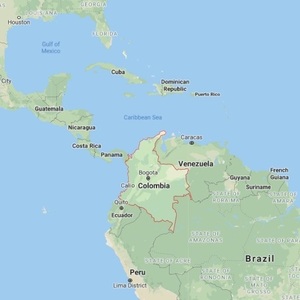Colombia temporarily reduces ethanol blend mandate

May 10, 2021
BY Erin Krueger
The government of Colombia has temporarily reduced its ethanol blend mandate from E10 to E4, citing inclement weather that has impacted domestic production and high prices for U.S. ethanol as the reasons for its action.
A report field with the USDA Foreign Agricultural Service’s Global Agricultural Information Network in mid-April explains that Colombia has had an ethanol blend mandate in place since 2005. While that mandate has historically been applied inconsistently, the report notes that since mid-2017 the country has maintained an ethanol blend mandate between E8 and E10 in most of the country due to steady local production and increasing ethanol imports, primarily form the U.S.
Advertisement
Advertisement
On March 31, however, the Colombian Ministry of Mines and Energy, along with the Ministries of Agriculture and Rural Development and Environment and Sustainable Development, issued a resolution decreasing the ethanol blend mandate from E10 to E4, effective April 1. According to the GAIN report, the mandate is currently scheduled to increase to E6 in July and E8 in August before returning to E10 in September.
The resolution issued by the government states that excessive rains in sugarcane producing regions this spring calused a shortage of local ethanol feedstock. Domestic production is also expected to be temporarily reduced as ethanol plants perform maintenance shutdowns in April and May.
Historically, a significant percentage of the ethanol needed to meet Colombia’s blend mandate has been imported, with much of that volume imported from the U.S. According to the GAIN report, Colombia was the sixth largest market for U.S. ethanol exports last year. Rising prices for U.S. ethanol, however, when coupled with a two-year countervailing duty on U.S. ethanol implemented by the Colombian government in May 2020, is expected to limit imports of U.S. ethanol in the near term.
Advertisement
Advertisement
Related Stories
The USDA has announced it will delay opening the first quarterly grant application window for FY 2026 REAP funding. The agency cited both an application backlog and the need to disincentivize solar projects as reasons for the delay.
Neste and DHL Express have strengthened their collaboration with the supply of 7,400 tons (9.5 million liters) of neat, i.e. unblended, Neste MY Sustainable Aviation Fuel to DHL Express at Singapore Changi Airport starting July 2025.
CoBank’s latest quarterly research report, released July 10, highlights current uncertainty around the implementation of three biofuel policies, RFS RVOs, small refinery exemptions (SREs) and the 45Z clean fuels production tax credit.
The U.S. Energy Information Administration maintained its forecast for 2025 and 2026 biodiesel, renewable diesel and sustainable aviation fuel (SAF) production in its latest Short-Term Energy Outlook, released July 8.
XCF Global Inc. on July 10 shared its strategic plan to invest close to $1 billion in developing a network of SAF production facilities, expanding its U.S. footprint, and advancing its international growth strategy.
Upcoming Events










